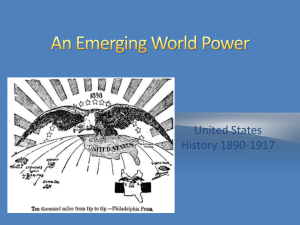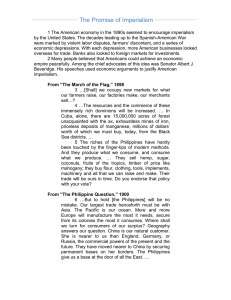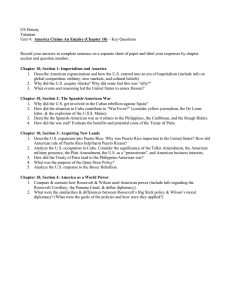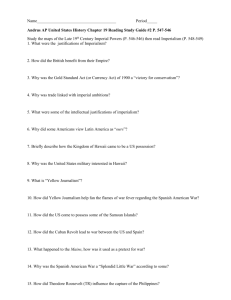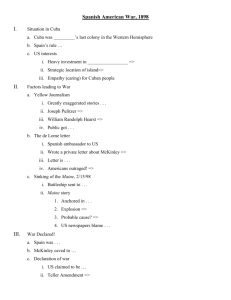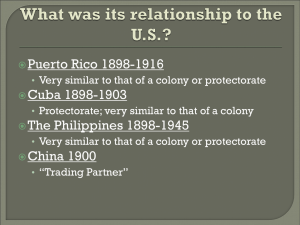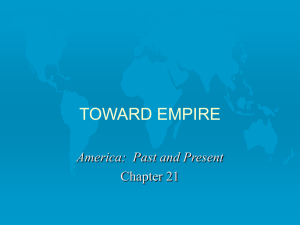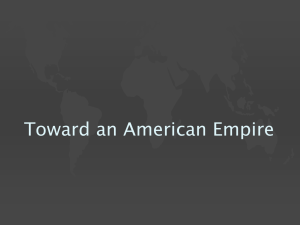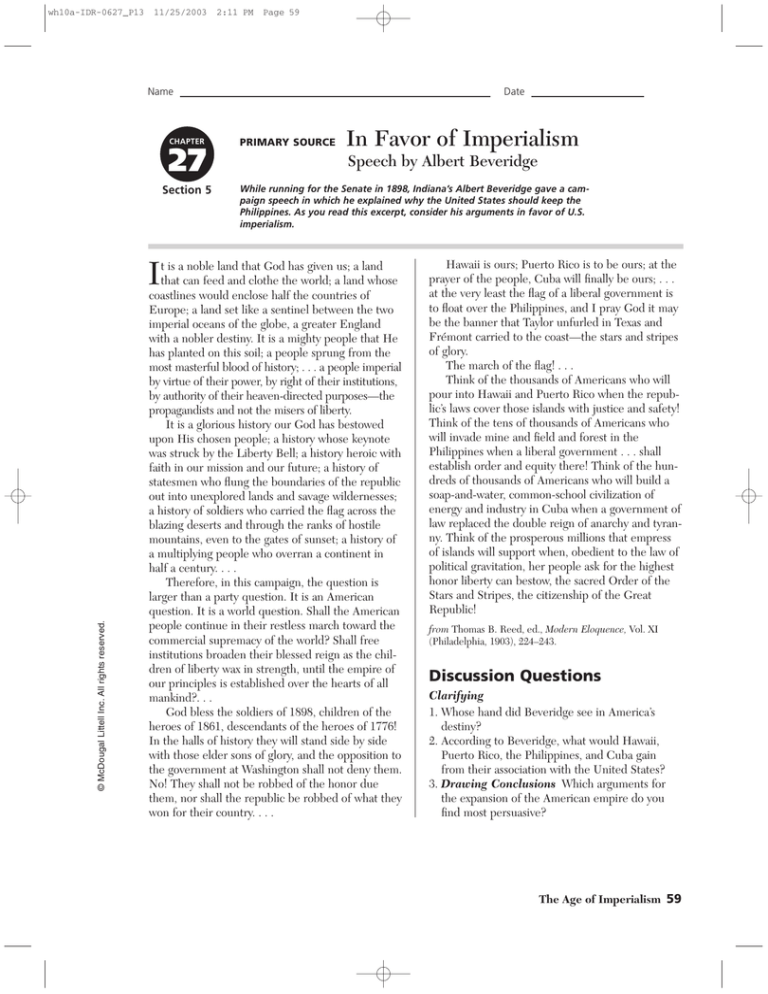
wh10a-IDR-0627_P13
11/25/2003
2:11 PM
Page 59
Name
CHAPTER
27
Section 5
© McDougal Littell Inc. All rights reserved.
I
Date
PRIMARY SOURCE
In Favor of Imperialism
Speech by Albert Beveridge
While running for the Senate in 1898, Indiana’s Albert Beveridge gave a campaign speech in which he explained why the United States should keep the
Philippines. As you read this excerpt, consider his arguments in favor of U.S.
imperialism.
t is a noble land that God has given us; a land
that can feed and clothe the world; a land whose
coastlines would enclose half the countries of
Europe; a land set like a sentinel between the two
imperial oceans of the globe, a greater England
with a nobler destiny. It is a mighty people that He
has planted on this soil; a people sprung from the
most masterful blood of history; . . . a people imperial
by virtue of their power, by right of their institutions,
by authority of their heaven-directed purposes—the
propagandists and not the misers of liberty.
It is a glorious history our God has bestowed
upon His chosen people; a history whose keynote
was struck by the Liberty Bell; a history heroic with
faith in our mission and our future; a history of
statesmen who flung the boundaries of the republic
out into unexplored lands and savage wildernesses;
a history of soldiers who carried the flag across the
blazing deserts and through the ranks of hostile
mountains, even to the gates of sunset; a history of
a multiplying people who overran a continent in
half a century. . . .
Therefore, in this campaign, the question is
larger than a party question. It is an American
question. It is a world question. Shall the American
people continue in their restless march toward the
commercial supremacy of the world? Shall free
institutions broaden their blessed reign as the children of liberty wax in strength, until the empire of
our principles is established over the hearts of all
mankind?. . .
God bless the soldiers of 1898, children of the
heroes of 1861, descendants of the heroes of 1776!
In the halls of history they will stand side by side
with those elder sons of glory, and the opposition to
the government at Washington shall not deny them.
No! They shall not be robbed of the honor due
them, nor shall the republic be robbed of what they
won for their country. . . .
Hawaii is ours; Puerto Rico is to be ours; at the
prayer of the people, Cuba will finally be ours; . . .
at the very least the flag of a liberal government is
to float over the Philippines, and I pray God it may
be the banner that Taylor unfurled in Texas and
Frémont carried to the coast—the stars and stripes
of glory.
The march of the flag! . . .
Think of the thousands of Americans who will
pour into Hawaii and Puerto Rico when the republic’s laws cover those islands with justice and safety!
Think of the tens of thousands of Americans who
will invade mine and field and forest in the
Philippines when a liberal government . . . shall
establish order and equity there! Think of the hundreds of thousands of Americans who will build a
soap-and-water, common-school civilization of
energy and industry in Cuba when a government of
law replaced the double reign of anarchy and tyranny. Think of the prosperous millions that empress
of islands will support when, obedient to the law of
political gravitation, her people ask for the highest
honor liberty can bestow, the sacred Order of the
Stars and Stripes, the citizenship of the Great
Republic!
from Thomas B. Reed, ed., Modern Eloquence, Vol. XI
(Philadelphia, 1903), 224–243.
Discussion Questions
Clarifying
1. Whose hand did Beveridge see in America’s
destiny?
2. According to Beveridge, what would Hawaii,
Puerto Rico, the Philippines, and Cuba gain
from their association with the United States?
3. Drawing Conclusions Which arguments for
the expansion of the American empire do you
find most persuasive?
The Age of Imperialism 59

